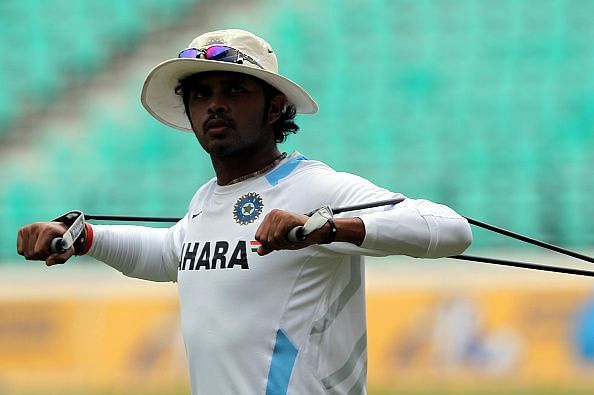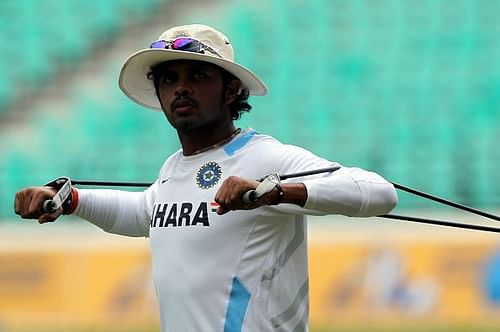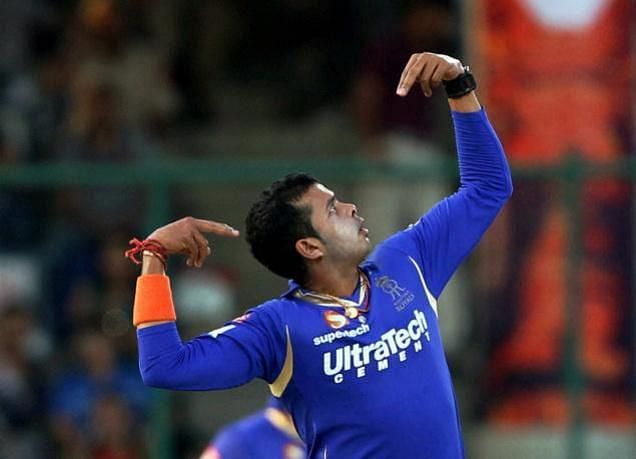
S Sreesanth opens up about his time during exile

What's the story?
Banned India cricketer S Sreesanth maintained the claims of him being innocent with respect to the 2013 IPL spot-fixing scandal and pleaded the BCCI to allow him to play league cricket, now that the Kerala High Court has directed the board to lift the ban imposed on the cricketer in 2013.
In an interview with Wisden India, the 34-year-old fast bowler opened up on myriad aspects, ranging from the time he spent as a banned cricketer until a special court in Delhi acquitted him of all charges in 2015 and the attitude of the BCCI even after the court's verdict.
After it was learned that the BCCI were to contest the verdict of the Kerala High Court, Sreesanth, in what he now explains as a fit of rage, sent out a series of tweets targetting the BCCI for the treatment meted out to him.
"I am very hurt by what is happening. I have been through too much in my career. You tell me, won’t you feel hurt if you’re at the receiving end of such treatment? I said what I said on Twitter in a fit of rage," Sreesanth explained.
"I didn’t mean to hurt anyone. That has never been my intention. I have always respected the BCCI and I still do. It’s just that having been through so much I feel that me, my family and my supporters deserve this break. I have worked relentlessly all these years without ever naming or pulling anyone up. I have kept quiet about it and handled the situation with a lot of dignity," he added.
In case you didn't know...
Sreesanth, Ankeet Chavan, and Ajit Chandila, all playing for the Rajasthan Royals at the time, were arrested by the Delhi Police in Mumbai on May 16, 2013, in relation to the allegations of fixing matches while being in communication with bookies.
Later in June 2015, Delhi's Patiala House Court dropped all charges against all three accused due to insufficient evidence under the Maharashtra Control of Organized Crime Act (MCOCA), a special law enacted by the Maharashtra state government to tackle organized crime syndicates.
On August 7 this year, the Kerala High Court passed a verdict directing the BCCI to lift the life ban imposed on Sreesanth. The BCCI's anti-corruption unit had imposed a life ban on the speedster and the board had refused to reinstate him even after the Delhi court had acquitted him of all charges.
Details
"They said I had to serve my time and I did. That too, despite never being proven guilty. Not once have they provided me with the facts of the case. If they feel like I am involved, I insist that they make it public. They have never proved that I was involved in spot-fixing in any way," the aghast cricketer minced no words while expressing his frustration.
"Some people who have been convicted of fixing have come back to play. Why is the law different for me? Despite all this, all I am asking for is to play league cricket. I am not saying I need to be playing international cricket right away. If I prove my fitness and if I prove that I still have the skills, I don’t see why I cannot play for India. That’s all I want. Justice."
Reflecting on the time he spent as an exiled cricketer, during which he tried out stints as an actor, a politician and a part-time dancer, Sreesanth made public the trauma that his family members had to go through because of the accusations that were levelled at him.
"All of a sudden, when this fixing thing happened, they put me and my family through hell. My father and my mother couldn’t even go to a temple peacefully. My niece couldn’t go to school because of everything they said about me. It was tough times. I don’t wish even my enemies go through a phase like this in their lives."

When asked about there being an element of truth in the accusations, Sreesanth replied that he was accused because people he knew were accused. It is known that Janardhan, the bookie, was a childhood friend of Sreesanth and they had played together for Kerala.
"If you have a close friend who you are seen with all the time, and that friend works out deals behind your back, people will think you’re involved right? That’s exactly what happened.
"People assumed that I was involved because the people I knew were involved. Okay fine, even if that is the case, prove it to me. Show me that I have done it. They’re just saying that I fixed matches and all that, so why don’t they just go public with the information they have?" Sreesanth alleged.
There were allegations that Sreesanth had used a towel to indicate that he was about to give away runs in a particular over in exchange for money. The cricketer rubbished these allegations and maintained that carrying a towel or applying zinc oxide on his face was something that he had often done.
"I love Allan Donald. I have done that before too, you know. I would even wear plenty of zinc oxide on my face like Donald would. Does that mean those matches were fixed too? Is it a crime to be superstitious?
"In fact, in the first over, I asked Kumar Dharmasena (the umpire) if it was okay if I kept a towel on me. Surely the stump microphones picked that up. I did that only because it made me feel like Donald. Why would someone fix for Rs 10 lakh? At least if you’re accusing me, say Rs 10 crore or something. Why would I jeopardize my career, my life for Rs 10 lakh? That’s why I believed I would be acquitted because it’s all too silly to be true."
What's next?
The BCCI has refused to lift the ban imposed on the cricketer citing reasons that its anti-corruption unit had found Sreesanth guilty and that mandate was binding on all the cricketers.
Even with a formal court order now released, the BCCI has refused to relent and has decided to contest the verdict, something that has left Sreesanth fuming. Keeping these developments in mind, it is unlikely that Sreesanth would be given permission to play league cricket any time in the near future.
Author's take
The allegations and accusations aside, if a court of law has acquitted a player of corruption charges, the BCCI must adhere to the directions enforced by law. But just like the board has in other disciplines, it continues to defy the orders of the court and keeps masquerading itself as guardian of the game.
The way Mohammad Amir was handled by the Pakistan Cricket Board (PCB) could be a case in point. After pleading guilty, Amir returned after the expiry of his five-year ban and worked his way through the domestic structure.
The difference here is that Amir was only 24 years old at the time and Sreesanth is 10 years older. But there must be a process to be followed, and Sreesanth's requests must be entertained especially after he's been declared not guilty by the courts.